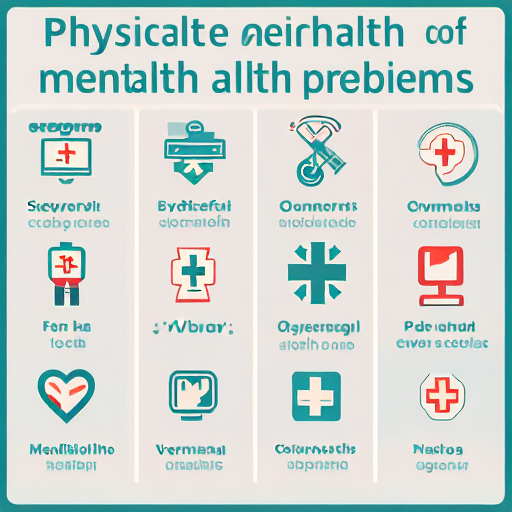Did you know that men are 50% less likely to visit their doctor compared to women? Welcome back to webpage When it comes to health, men’s issues often stay under the radar. Many men ignore symptoms of magnesium , delay medical assistance, or avoid regular checkups altogether.
Sometimes, an itch is just an itch or a sore muscle is just that. But when symptoms persist or follow a pattern, they could point to something more serious. from dizziness and excessive thirst to skin changes and persistent coughs. Stick around to learn more!

1. Shortness of Breath
Feeling short of breath, even during light activities like walking, shouldn’t be taken lightly. Symptoms such as chest tightness, extreme shortness of breath, or dizziness may indicate coronary ischemia, a condition caused by a partial or complete blockage of an artery supplying blood to the heart.
If you notice breathlessness or exertion after simple tasks, consult your doctor immediately. What activities leave you out of breath? Let us know in the comments!
2. Bloody or Black Stools
Bowel movements vary in color due to diet or medications, but if you notice pale, black, or bloody stools, it could signal a serious issue. Dark stools might indicate bleeding in the upper digestive tract, while bloody or maroon-colored stools could point to bleeding in the lower tract.
Potential causes include hemorrhoids, ulcers, or internal bleeding. Health Symptoms Persistent changes in stool color warrant immediate medical attention.
3. Dizziness
Frequent dizziness, light-headedness, or a sensation of the room spinning could signal that not enough blood is reaching your brain. It might result from dehydration, a drop in blood pressure, or more severe conditions like heart disease, stroke, or shock.
Dizziness can also accompany common illnesses like the flu or allergies ,Symptoms of Magnesium but if it’s recurring, don’t ignore it.
4. Excessive Snoring
Snoring that disrupts your sleep or wakes you or your partner could be a sign of obstructive sleep apnea. This condition interrupts breathing during sleep, increasing risks of high blood pressure, irregular heartbeat, heart attack, and stroke.
If switching to sleeping on your side doesn’t help, consult a sleep specialist. Treatment options may include CPAP devices to ensure proper airflow.
5. Frequent Heartburn
Occasional heartburn is common, but if it occurs twice a week or more, it might indicate gastroesophageal reflux disease (GERD). Left untreated, GERD can cause esophageal inflammation, ulcers, and even cancer.
Lifestyle changes like avoiding trans fats, alcohol, processed meats, and caffeinated beverages can help. Severe cases might require medication.
6. Excessive Thirst
While staying hydrated is important, persistent thirst may signal health issues like diabetes, where elevated blood sugar triggers thirst as your body works to flush excess glucose.
Thirst can also indicate internal bleeding, infection, or organ failure. Health Symptoms Annual blood tests can help monitor glucose levels, especially if you have a family history of diabetes.
7. Trouble with Vision
Vision changes like blind spots, blurry vision, or halos around lights may suggest conditions like glaucoma, cataracts, or diabetic retinopathy. Symptoms of Magnesium They can also be related to more severe issues like a stroke or brain tumor.
Regular eye exams can catch these problems early. If you notice your TV volume creeping up, consider a hearing test as well.
8. Frequent Fatigue
Everyone feels tired occasionally, but persistent fatigue is a red flag. It may point to conditions like diabetes, heart disease, infections, kidney or liver disease, sleep disorders, or thyroid dysfunction.
Prolonged exhaustion can also stem from psychological factors like depression. If you feel drained despite rest, it’s time to see your doctor.
9. Erectile Dysfunction (ED)
ED isn’t just a bedroom issue—it can be an early warning sign of poor blood flow and serious health problems like heart disease or stroke. Men experiencing ED should see it as a wake-up call, especially if other risk factors like smoking or a family history of heart disease are present.
10. Swollen or Stiff Joints
Joint stiffness or swelling, even after physical activity, could signal osteoarthritis or autoimmune arthritis. Other causes include hormonal imbalances, poor nutrition, Health Symptoms or immune system issues.
11. Skin Changes
A new mole, an oddly shaped freckle, or changes in the color and size of an existing mole could signal skin cancer. Men who spend time outdoors without sunscreen are especially at risk. Symptoms of Magnesium Early detection is key, so consult a doctor for unusual skin changes.
12. Frequent Urination
Health Symptoms Frequent urination could point to diabetes or prostate problems like enlargement or infection. Symptoms such as reduced urine flow, pelvic discomfort, or blood in your urine or semen should be checked immediately to rule out serious conditions like cancer.

